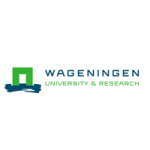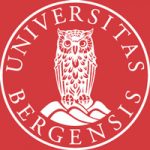项目介绍
Function
Are you interested in driving the future of health and sustainability? Are you an ambitious researcher who is interested in being part of an interdisciplinary team to study how we can reduce meat consumption in a society where eating meat is the social norm? Do you have a social science background and a keen interest in carrying out innovative, societally relevant research?
We are confronted with various global challenges, including climate change and obesity, threatening human and planetary health. Scientific consensus is growing that the protein transition is part of the solution: The substitution of animal proteins with plant-based proteins. This transition contributes to improving planetary health and public health. A successful protein transition requires behavioral changes among many people, which starts with a committed minority of people initiating change, until a tipping point is reached after which the majority of the population adopts the new behavior. Little is known on what accelerates the further spreading of the new behavior from the minority towards the majority. Therefore, this PhD project will focus on the temporal dynamic of resistance to change.
We are seeking a PhD candidate to join our interdisciplinary research project, which explores the relationship between meat reduction and social norms. The project will examine how individuals vary in their experience of resistance and perception of social norms related to reducing meat consumption. Additionally, it will focus on how this resistance changes over time and how personalized strategies, such as microtargeted messaging, can help decrease resistance and strengthen social norms in favor of reducing meat consumption.
The PhD researcher will build on multiple (quantitative and qualitative) methods, combining among others segmentation studies, longitudinal natural research and experimental research to understand the cause and course of resistance in relation to social norms, in order to use these insights to examine how acceptance of meat reduction can be boosted.
Your duties and responsibilities include:
- carry out innovative, societally relevant research on meat consumption and social norms;
- participate in relevant conferences, be an active member of research groups;
- disseminate research among relevant societal groups and stakeholders;
- assist in teaching and management tasks (max 20% of your contract).
You will work here
Because of the interdisciplinary character of the project, the PhD will be jointly embedded within the Consumption and Healthy Lifestyles Group and the Strategic Communication Group. You will be co-supervised by Sanne Raghoebar, assistant professor in Societal Transitions and Behavior Change , and Annelien Van Remoortere, assistant professor in political communication. You will have access to a vibrant interdisciplinary research community and opportunities for professional development through workshops, conferences, and collaborations.
Function Requirements
This project draws on different disciplines from social sciences, including psychology, communication science, and sociology. The PhD candidate is not expected to be an expert in all disciplines upfront but should possess broad curiosity, ability to navigate multiple fields, and enthusiasm about cross-disciplinary learning and development. There is, moreover, ample opportunity and freedom to further shape this project, which requires creativity and taking initiative.
You have:
- A MSc degree in the behavioural or social sciences, preferably a research master in Psychology, Communication Science, Behavioural Science, or a related science; Candidates currently finalizing their Master’s are also eligible to apply;
- Background in quantitative methods for behavioral research (e.g., behavioral experiments, Ecological Momentary Assessment) and solid statistical skills (e.g., R), and willingness to learn new methods and interdisciplinary approaches;
- Affinity with scientific research on social norms and psychological resistance to change, and the domains of health and sustainability;
- Excellent communication and analytical skills, an open and inquisitive personality, and the capacity to work independently;
- Proficiency in Dutch or willingness to learn Dutch is an advantage.
For this position your command of the English language is expected to be at C1 level. Sometimes it is necessary to submit an internationally recognized Certificate of Proficiency in the English Language. More information can be found here.
Contactinformation
For more information about this position, please contact Sanne Raghoebar, sanne.raghoebar@wur.nl or Annelien Van Remoortere, annelien.vanremoortere@wur.nl.
For more information about the procedure, please contact Noorien Abbas, corporate recruiter, recruitment.ssg@wur.nl.
相关项目推荐
KD博士实时收录全球顶尖院校的博士项目,总有一个项目等着你!





